5 houseplants you should never place in your entryway, according to Feng Shui and interior design experts – and which ones to choose instead
The plants you have at the entrance to your home should purify the energy coming in and create a welcoming environment
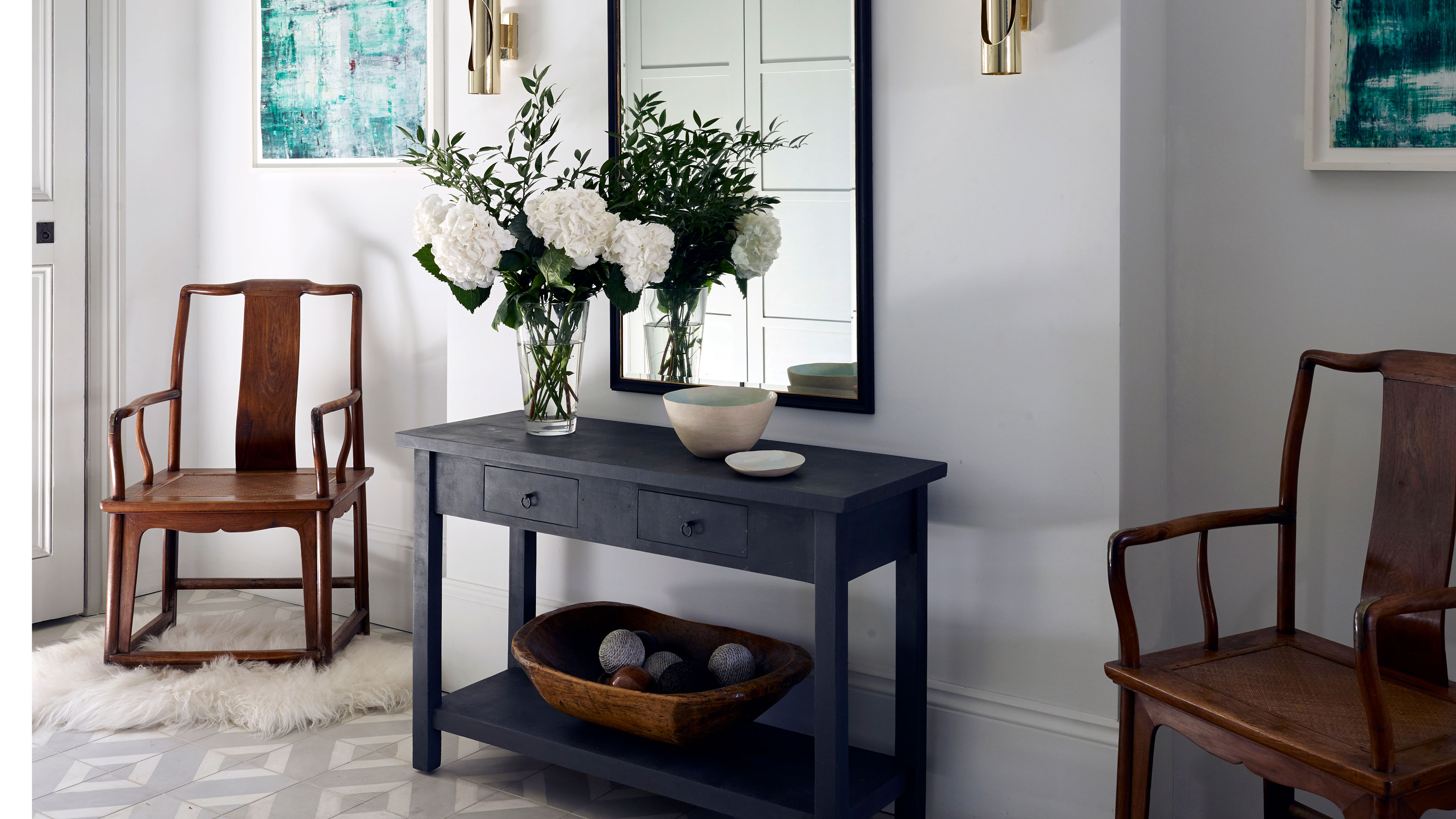

Finding the perfect spot for a houseplant is one of the many joys of having an indoor garden. Not only can it fill a missing piece of your interior décor and bring a room to life, choosing the best home for your plants will also allow them to thrive and grow bigger.
Not all plants are suited to all parts of the home however, and this is especially true in the practice of Feng Shui plants. An entryway, for example, needs some careful consideration. 'Your entryway is your home’s first impression, so the last thing you need is a plant that blocks energy, stabs your guests, or radiates bad luck,' explains interior design expert Magda Callery.
If you're feeling unsure of which Feng Shui plants to avoid in this part of the home, look no further. Here, Feng Shui and interior design experts tell us which houseplants you should never place in your entryway.
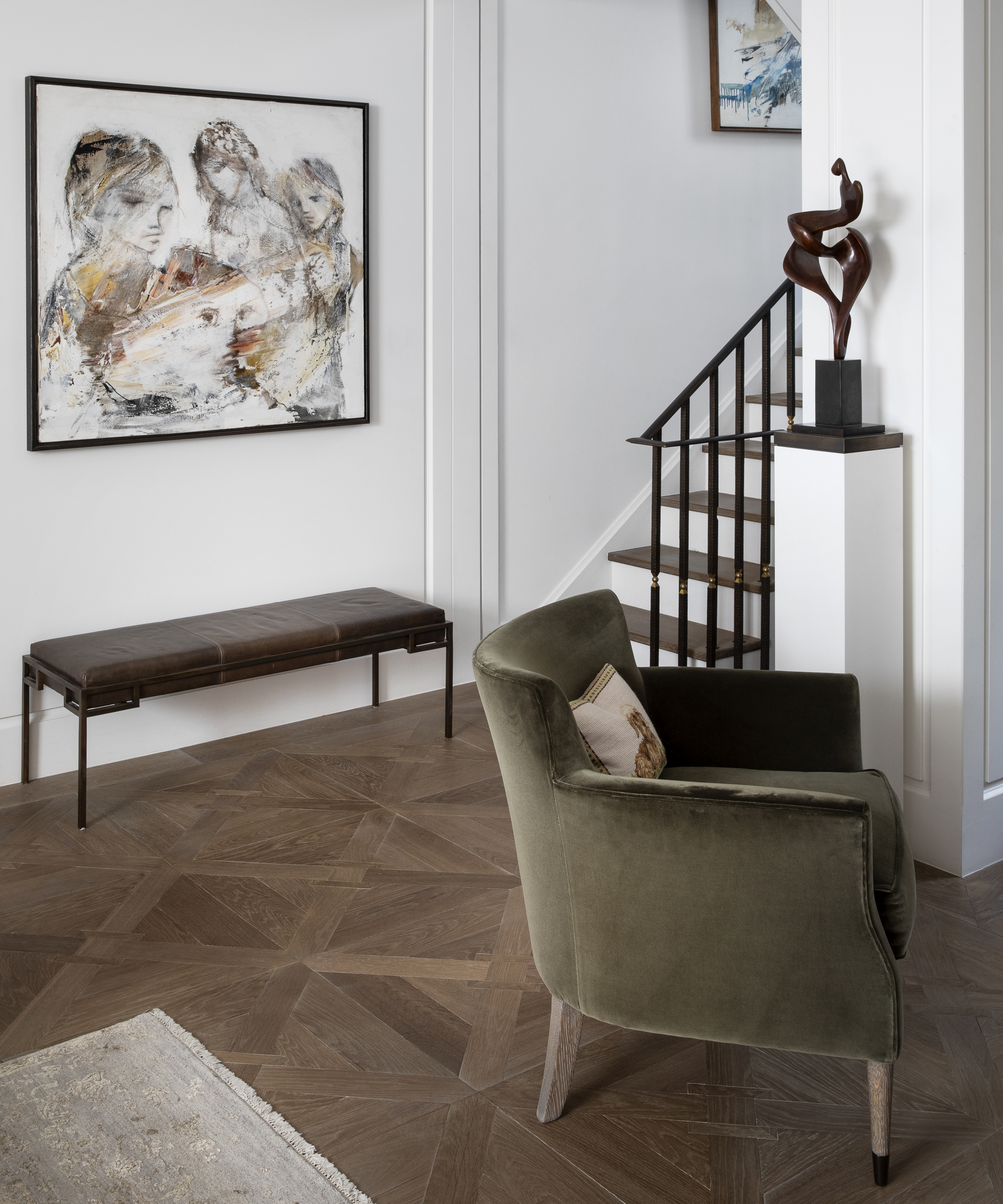
5 houseplants you should never place in your entryway
No matter which plants you grow in your entryway, you must always take care to avoid common indoor plant mistakes to keep your houseplants in a healthy state. 'You don't want a sick or dying plant in your entryway, as that will impede some of the flow of good energy into your home,' says Hannah Yang, Psy.D, licensed psychologist and Feng Shui expert. With that being said, here are the houseplants you should never place in your entryway.
1. Cacti
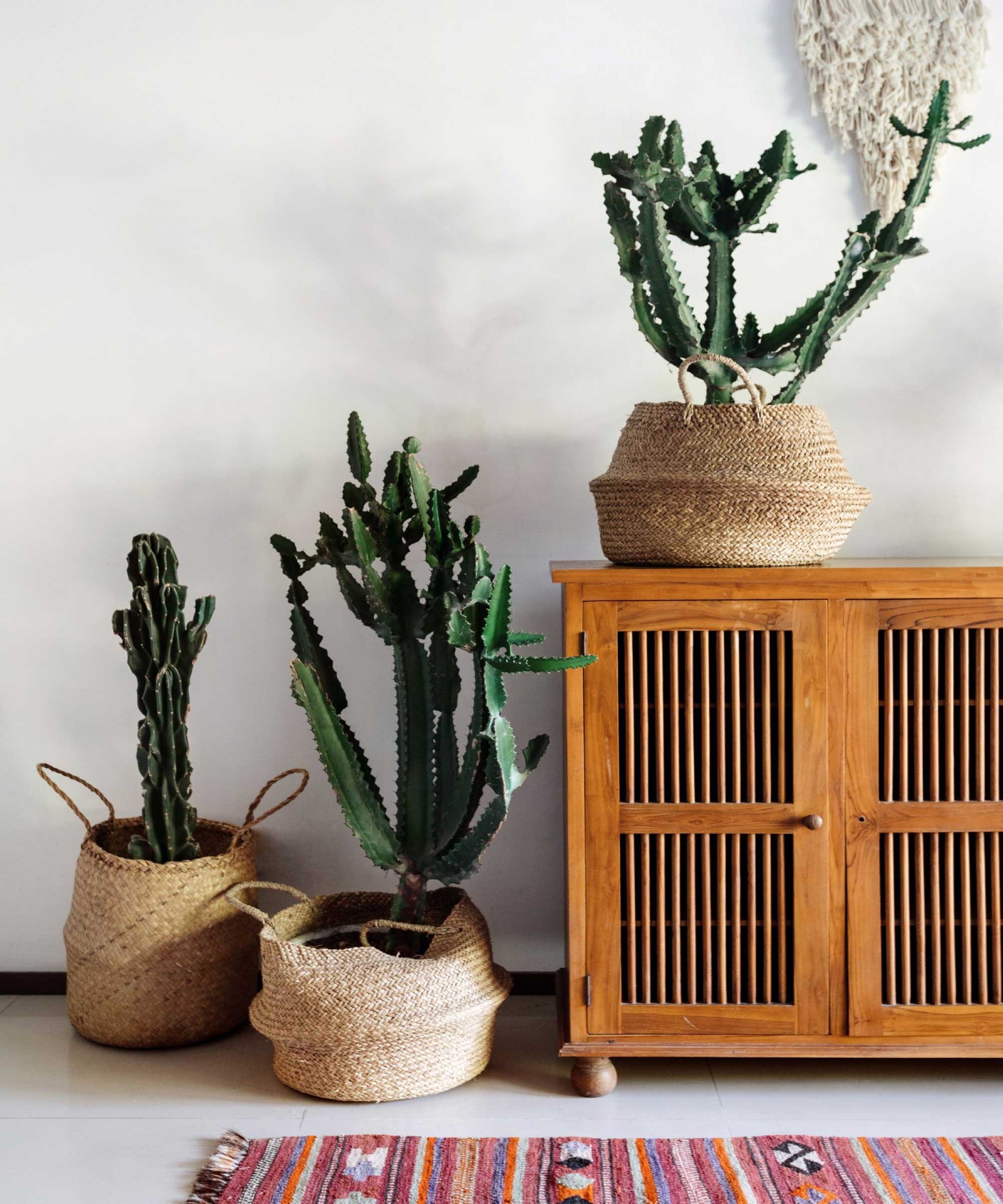
Cacti are wonderful in so many ways - they come in a wide range of shapes and colors, and add interesting structure to houseplant displays. However, experts say they are less than ideal for entryways, calling them 'bad energy items'.
'Those spikes don’t just poke your skin, they send out defensive, aggressive energy that can make your home feel more fortress than warm welcome,' says Magda.
The lack of calming presence often associated with cacti is also why they make the list of houseplants you should never place in a bedroom. Not only this, but they also have the potential to cause harm to guests entering and leaving your home.
'You might also subconsciously (or consciously) avoid it when coming in and out of your home, which creates an unnecessary disruption of the flow of you or your guests energy,' Hannah notes.
Instead, opt for a lucky houseplant, like lucky bamboo. It offers the same strong structure of cacti and is thought to bring prosperity and good fortune. This is ideal for an entryway, which Feng Shui expert Kathryn Wilking notes is associated with 'career path, knowledge, and interaction with the outside world.' Find lucky bamboo at Walmart.

Magda Callery is an interior designer and florist with over 15 years of experience creating beautiful, functional spaces. She loves to work with houseplants and floral arrangements to bring a space together.

Kathryn’s been working in the decorating business for more than 25 years, and transitioned into Home Staging. When she remarried in 1998, the puzzle was how to blend the two families together. She embraced Feng Shui and used these techniques to create function & flow, and help with the myriad challenges of a new family. Kathryn eagerly shares about Feng Shui via a weekly newsletter, blogs, posts on social media and on her podcast Feng Shui Your Day
2. Monstera
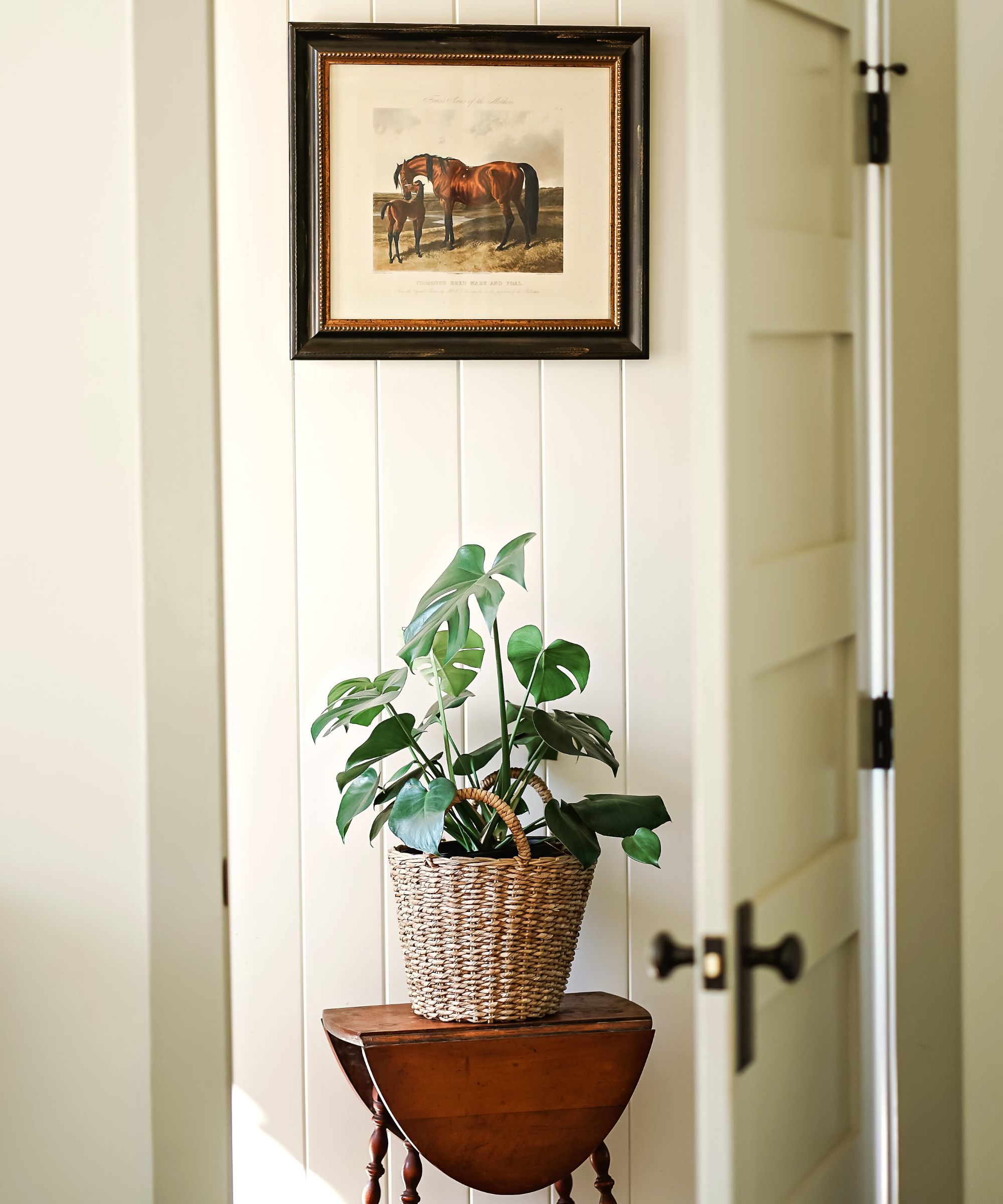
This one may be surprising as the leafy, round shape of monstera foliage doesn't lend itself to any Feng Shui houseplant mistakes. However, while this plant works well in other parts of the home, it can become disruptive in an entrance space.
'A giant, overgrown plant blocks the entrance, making it feel cramped and uninviting,' Magda says. 'Good energy needs space to move freely. If you have to squeeze past a towering plant just to get inside, you’re already working too hard,' she adds.
Monsteras, especially Monstera deliciosa, are loved for their large jungle-like leaves, but they can get in the way in the smaller space of an entryway. This might even leave you neglecting monstera care, resulting in your monstera drooping.
Alternatively, opt for a tall areca palm (from The Sill) that still offers lush foliage without you having to battle through to get to your front door or into your home.

Visionary and healthcare entrepreneur by passion, Licensed Psychologist by training, Dr. Hannah Yang loves creating new possibilities in the world of mental health and wellness. Dr. Yang established Balanced Awakening in 2015 as a niche psychotherapy practice for women. She loves to empower women to be their best selves in all facets of life. Hannah also loves to tap into her passion for design and Feng Shui to create fabulous environments for herself, her team, and her clients.
3. Aloe Vera
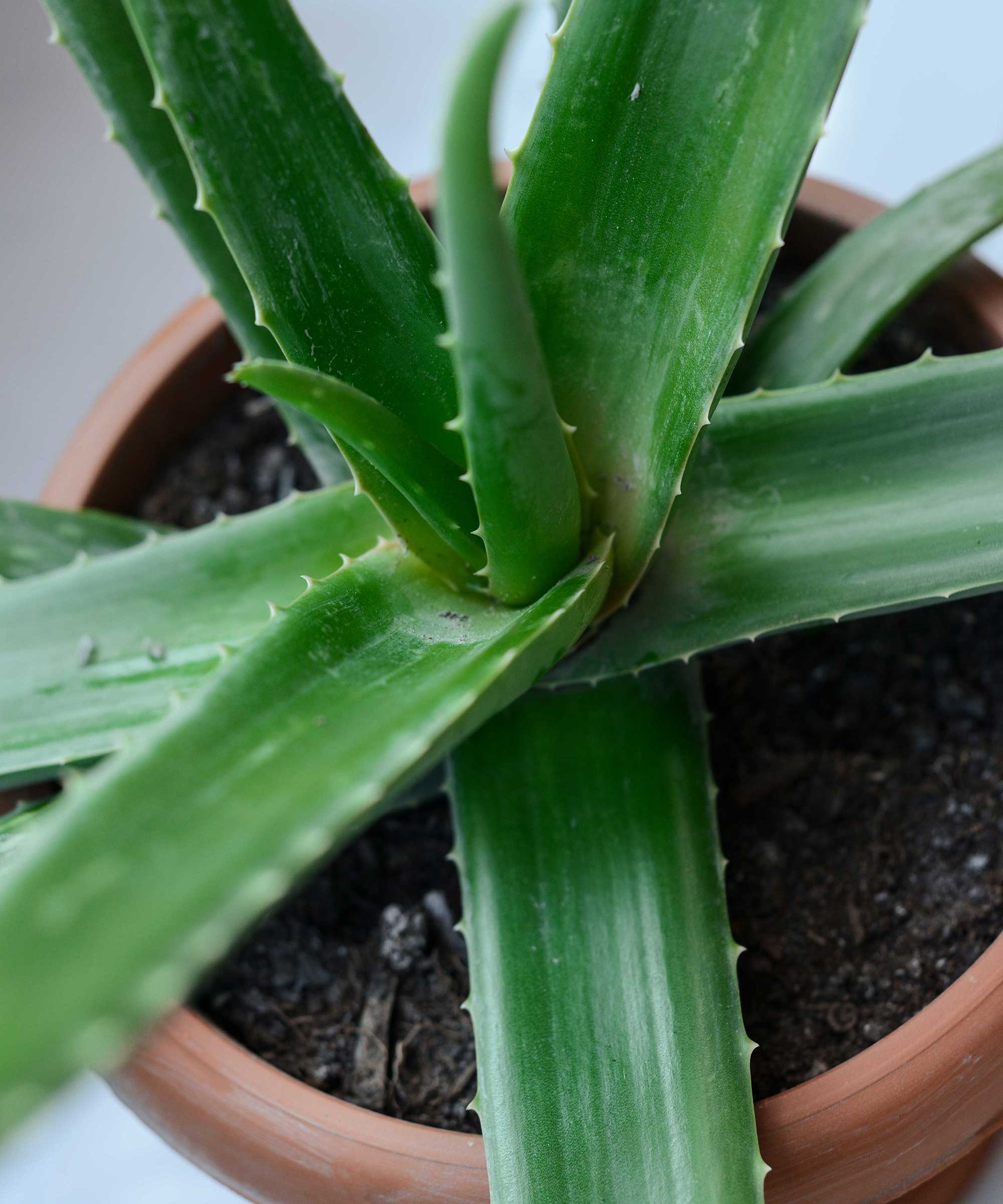
Just like spikey cacti, aloe vera can be problematic in an entryway, despite having many beneficial uses, such as providing a healing gel.
'Aside from being sharp and prickly, which is never a good thing in Feng Shui, it’s also poisonous to dogs,' notes Suzanne Roynon, Feng Shui expert. 'The only place to have one small aloe vera, and only if you are definitely going to use it for burns, is with other kitchen plants,' she recommends.
Aloe plant care requires plenty of bright light, even tolerating a full sun position. Depending on your home, this may also make the small and often darker space of an entryway an improper growing environment for this succulent.
Instead, opt for a pet-safe indoor plant like a type of spider plant, which also offers long fronds, although they have a softer appearance than those of an aloe plant. This variegated spider plant from The Sill is particularly reminiscent of the aloe vera foliage shape.

Suzanne is an Interiors Therapist, Feng Shui consultant, and author of Welcome Home, how stuff makes or breaks your relationship. She specializes in understanding the energetic impact of homes and certain possessions may have on all aspects of life, health and relationships, and the ways in which ‘stuff’ can actively prevent people and families from thriving and enjoying the lifestyle they deserve.
4. Dieffenbachia
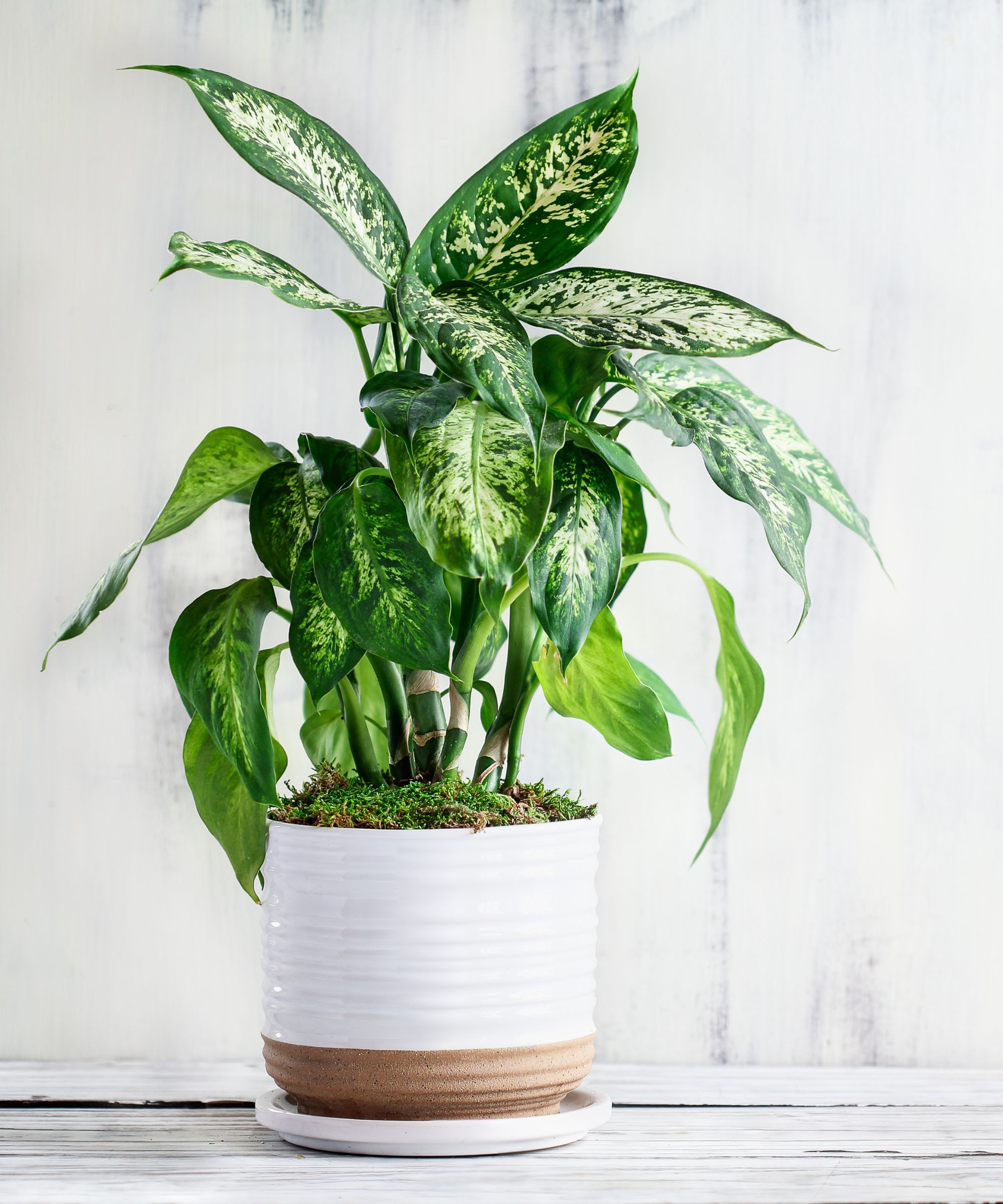
While dumb cane, or Dieffenbachia, might seem like an obvious choice for a entryway plant, due to it being an indoor low light plant, Feng Shui experts advise against using it at the entrance of your home.
'At face value, Dieffenbachia makes the grade as a useful Feng Shui plant because it has large, oval leaves and upward growth,' Suzanne describes. Unfortunately however, its leaves may shed calcium oxalate which irritates the skin and eyes when it’s touched without gloves and it can also cause problems for pets,' she explains.
Anything irritant should be avoided in an entryway as it doesn't create the welcoming environment you're aiming for in this space. Nevertheless, as Suzanne notes, it is a beautiful round plant to include elsewhere in the home, so long as you keep it away from pets and refrain from touching it.
An alternative entryway houseplant to dumb cane is a jade plant (from QVC). 'Jade plants are much more welcoming to energy because they have fat, rounded leaves which are said to represent abundance. They are easy to propagate too, which makes them financially friendly as well,' Suzanne explains. It's for these reasons many choose to place jade plants throughout the home.
5. Snake plant
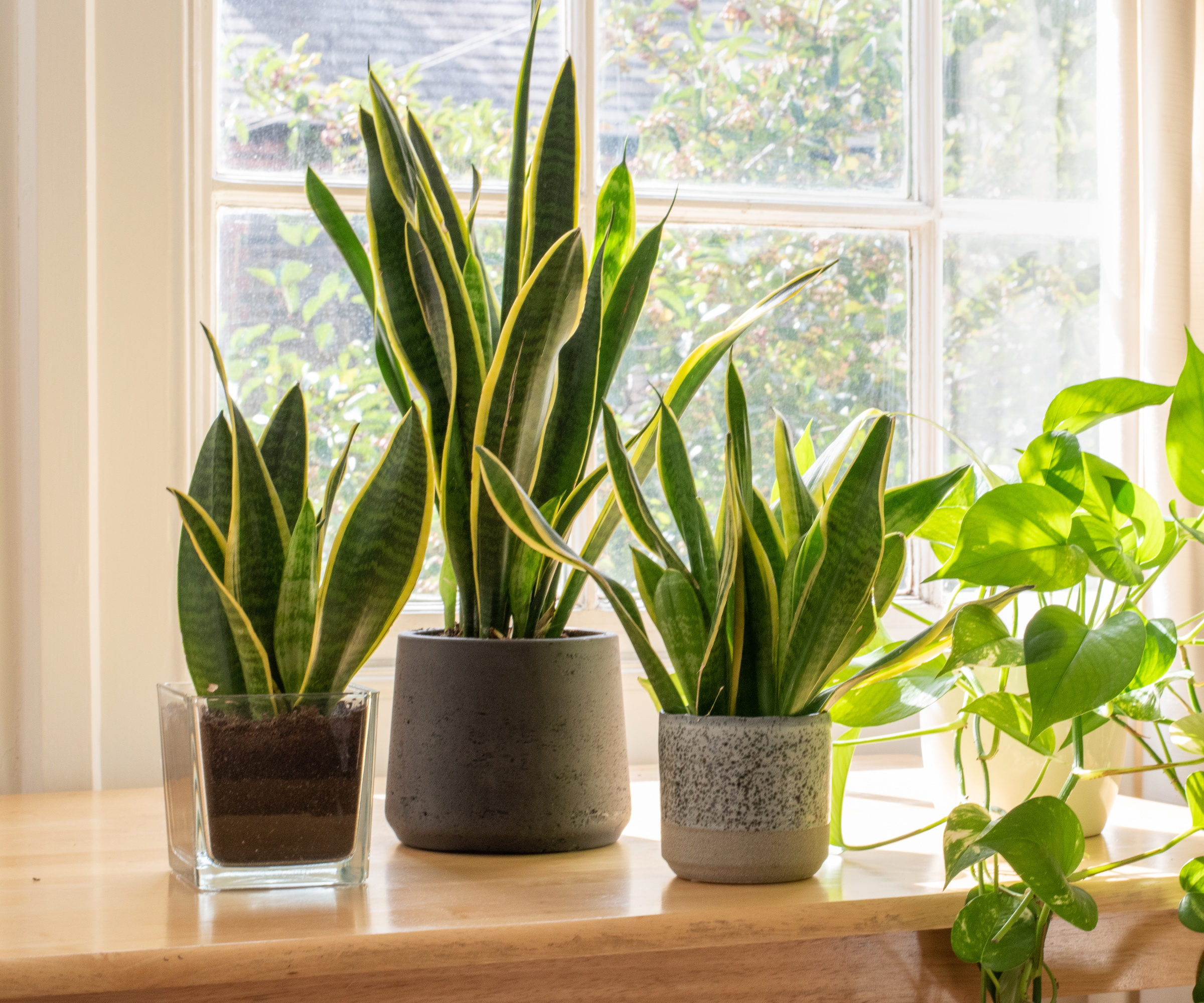
It can be quite tricky to know where to place a snake plant because of its sword-shaped foliage. While it is considered to represent strength and protection, some experts believe the sharpness of its shape is disadvantageous.
'Snake plants create what’s known as cutting energy. This may result in irritation, difficult conversations and miscommunication,' Suzanne explains. 'Whether that’s with a family member, visitor or just a neighbor who pops by, it’s preferable to have a relaxed and enjoyable space to greet guests,' she says.
Nevertheless, some people do prefer to keep a snake plant near an entryway for the protection it represents. The best thing to do is consider how it leaves you feeling and how it works in your space before deciding to use one in this part of your home.
If you would rather use an alternative entryway plant for protection, opt for a peace lily (from Walmart). These indoor flowering plants are thought to purify any negative energy coming into the home.
FAQs
Should you avoid having any plants in your entryway?
The answer to this question is subjective. While having no plants in your entryway is a sure way to keep this space of the home clear and convenient for passing through, it can also leave it feeling bare and unwelcoming. In Feng Shui, using certain plants in an entryway, like a jade plant, can be beneficial for bringing good fortune and purifying the energy coming into your home.
Carefully choosing the right plants for your entryway is just one consideration to make for this part of the home. 'Always keep your entryway clean, clear and clutter-free. It’s the mouth of your home in Feng Shui and it’s also a reflection of you and the way you live,' Suzanne Roynon explains.
'The more welcoming it is, the better quality of energy and good fortune you welcome into your life,' she adds. Take a look at our guide to entryway Feng Shui to discover other methods to make the entrance to your home the best it can be.
Sign up to the Homes & Gardens newsletter
Design expertise in your inbox – from inspiring decorating ideas and beautiful celebrity homes to practical gardening advice and shopping round-ups.

Tenielle is a Gardens News Writer at Homes & Gardens. She holds a qualification in MA Magazine Journalism and has over six years of journalistic experience. Before coming to Homes & Gardens, Tenielle was in the editorial department at the Royal Horticultural Society and worked on The Garden magazine. As our in-house houseplant expert, Tenielle writes on a range of solutions to houseplant problems, as well as other 'how to' guides, inspiring garden projects, and the latest gardening news. When she isn't writing, Tenielle can be found propagating her ever-growing collection of indoor plants, helping others overcome common houseplant pests and diseases, volunteering at a local gardening club, and attending gardening workshops, like a composting masterclass.
You must confirm your public display name before commenting
Please logout and then login again, you will then be prompted to enter your display name.
-
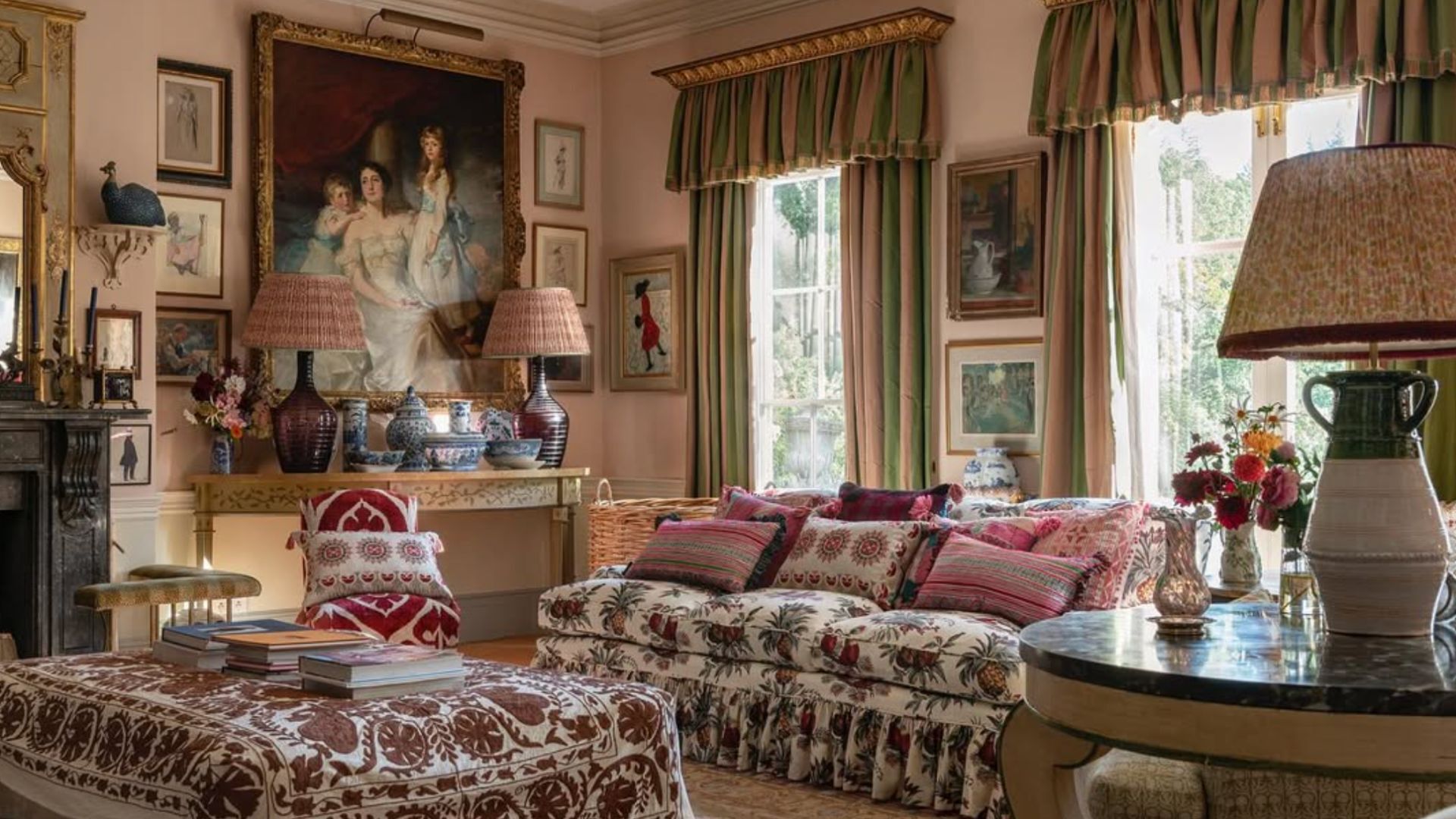 5 living room paint colors going out of style in 2025
5 living room paint colors going out of style in 2025What colors are going to date your living room this year? We look at the shades that are falling out of favour in 2025
By Sophia Pouget de St Victor
-
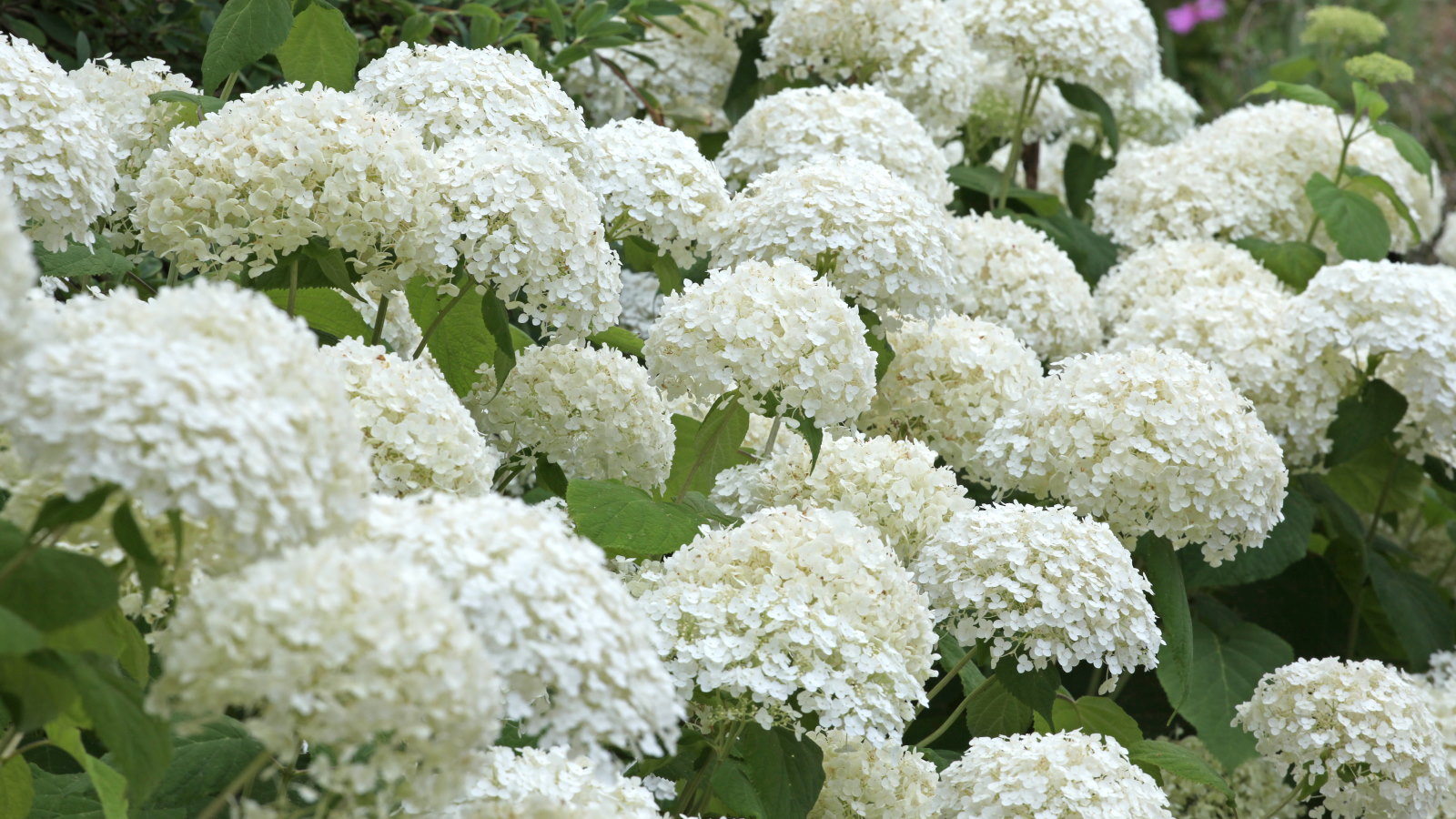 Your hydrangeas will flourish with bigger blooms and healthier growth thanks to this natural material
Your hydrangeas will flourish with bigger blooms and healthier growth thanks to this natural materialDiscover why you should be using leaf mold to mulch hydrangeas
By Drew Swainston